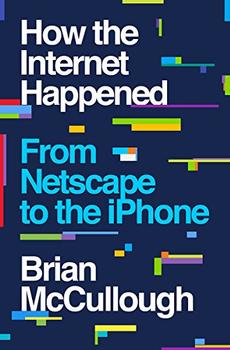Summary | Excerpt | Reviews | Beyond the book | Read-Alikes | Genres & Themes | Author Bio

Notes from the Last Days of American Spaceflight
by Margaret Lazarus DeanWinner of the Graywolf Press Nonfiction Prize, a breathtaking elegy to the waning days of human spaceflight as we have known it.
In the 1960s, humans took their first steps away from Earth, and for a time our possibilities in space seemed endless. But in a time of austerity and in the wake of high-profile disasters like Challenger, that dream has ended. In early 2011, Margaret Lazarus Dean traveled to Cape Canaveral for NASA's last three space shuttle launches in order to bear witness to the end of an era. With Dean as our guide to Florida's Space Coast and to the history of NASA, Leaving Orbit takes the measure of what American spaceflight has achieved while reckoning with its earlier witnesses, such as Norman Mailer, Tom Wolfe, and Oriana Fallaci. Along the way, Dean meets NASA workers, astronauts, and space fans, gathering possible answers to the question: What does it mean that a spacefaring nation won't be going to space anymore?
Leaving Orbit succeeds on many levels — in its evocative descriptions of Florida's humid, mosquito-infested space coast, and by delivering a heartfelt ode to a slice of American history. However, readers (like me), expecting a more probing and wide-ranging exploration of the hows and whys of the end days of an era of American spaceflight, might be a little let down by Lazarus Dean's check-all-the-boxes approach to the New Journalism format...continued
Full Review
 (749 words)
(749 words)
(Reviewed by Poornima Apte).
In Leaving Orbit, Margaret Lazarus Dean celebrates the utilitarian model of spaceflight as imagined by the Shuttle program, which was initiated in 1981.
 Before Shuttle, during the "heroic" era of spaceflight, small capsules were launched into space on the backs of rockets and disintegrated over the ocean upon the rockets' reentry and landing. The large spaceships of the Shuttle program, however, were designed to get to space and return so they could be reused. "From the start, the idea of the shuttle had been an idea for a fleet, with the reliability that comes with multiple identical vehicles," Lazarus Dean explains. "One orbiter could be prepared for flight while another was in space and yet another undergoing repairs. Ultimately, the...
Before Shuttle, during the "heroic" era of spaceflight, small capsules were launched into space on the backs of rockets and disintegrated over the ocean upon the rockets' reentry and landing. The large spaceships of the Shuttle program, however, were designed to get to space and return so they could be reused. "From the start, the idea of the shuttle had been an idea for a fleet, with the reliability that comes with multiple identical vehicles," Lazarus Dean explains. "One orbiter could be prepared for flight while another was in space and yet another undergoing repairs. Ultimately, the...

If you liked Leaving Orbit, try these:

by Brian McCullough
Published 2018
Tech-guru Brian McCullough delivers a rollicking history of the internet, why it exploded, and how it changed everything.

by Meredith Wadman
Published 2018
The epic and controversial story of a major breakthrough in cell biology that led to the conquest of rubella and other devastating diseases.
To limit the press is to insult a nation; to prohibit reading of certain books is to declare the inhabitants to be ...
Click Here to find out who said this, as well as discovering other famous literary quotes!